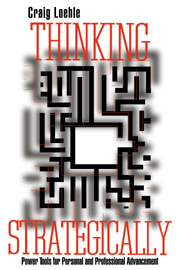9 - Analysis: Tools of thought
Published online by Cambridge University Press: 24 September 2009
Summary
It is commonly known that success in any profession depends on the possession of both domain-specific knowledge (facts) and domain-specific techniques (tools). For example, a civil engineer must know about building materials, construction regulations, etc., as well as techniques for calculating buckling of columns and other factors. It is generally believed that there is an unbridgeable gulf between disciplines such that a person needs considerable retraining to change professions. While this is true for the domain-specific knowledge component of professional expertise, it is not entirely true for the techniques or tools of problem solving. Many tools of analysis are in fact quite similar across fields. A profession that shows this clearly is applied mathematics, whose practitioners apply their mathematical techniques across many different disciplines. Philosophers also may span many disciplines, but it is more difficult to verify that they do so successfully. Business leaders are similarly often able to successfully run several different types of business. In the arts, some individuals seem able to master multiple media (such as a singer/songwriter/dancer/actor).
The reason that some individuals can exhibit such versatility is that they can carry over their methods of reasoning, of problem solving, and of analysis from one field or problem to another. Even within a field, the creative and innovative professional generalizes across problems, whereas the plodder can only solve problems if they closely match problems whose solution has already been worked out.
- Type
- Chapter
- Information
- Thinking StrategicallyPower Tools for Personal and Professional Advancement, pp. 127 - 151Publisher: Cambridge University PressPrint publication year: 1996



